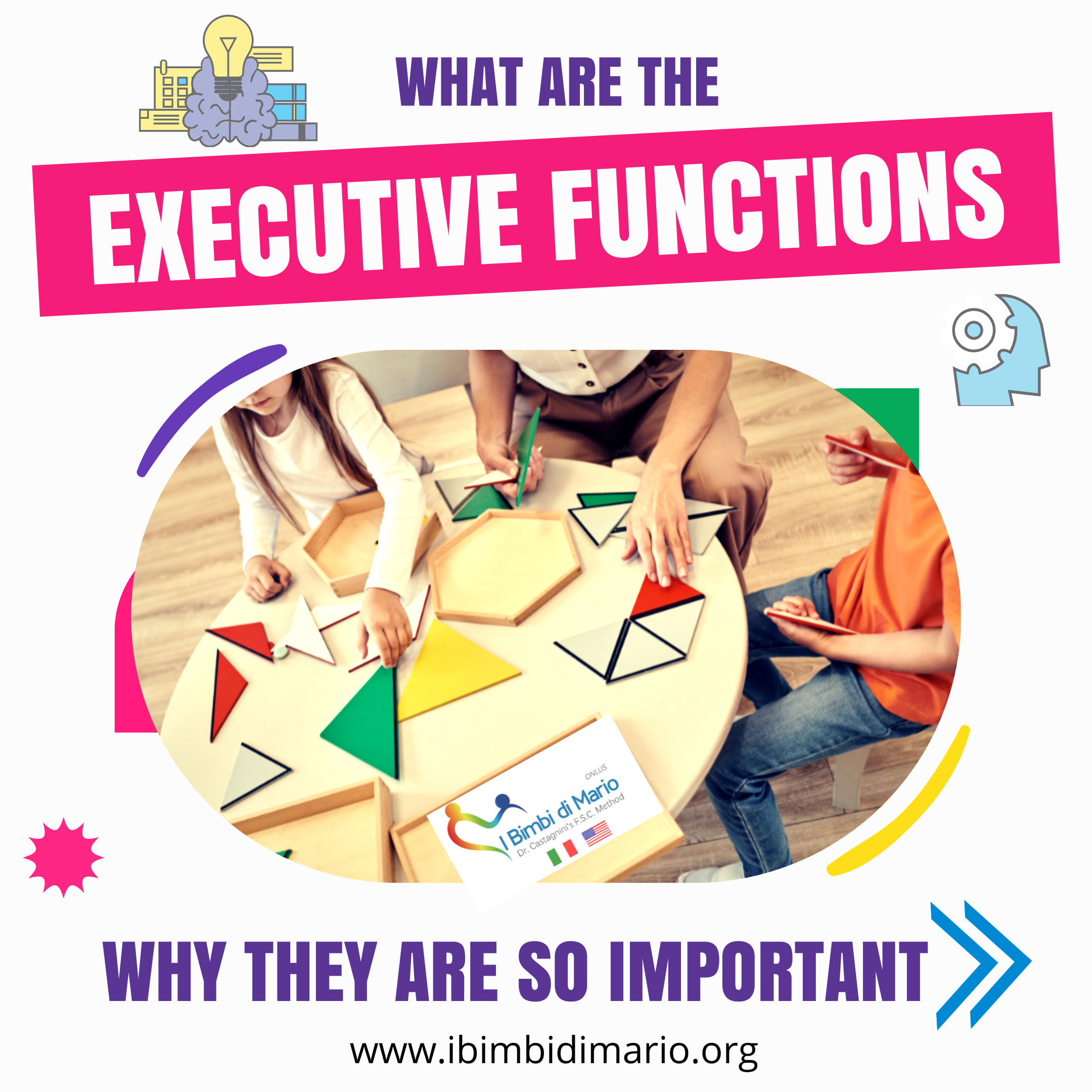WHAT THEY ARE, WHY THEY MATTER, AND HOW TO TRAIN THEM

Executive functions (EF) are a complex system of functional mental modules that regulate the processes of planning, control, and coordination within the cognitive system. They govern the activation and modulation of cognitive patterns and processes.
In practical terms, EF are a series of mental processes that interact to initiate thoughts and organize actions aimed at achieving a goal. They provide us with the skills necessary to manage behavior, making them essential for navigating all aspects of daily life—whether personal, academic, or professional.
These high-level skills rely on the involvement of various brain areas, particularly the prefrontal cortex, which is the most evolved part of the human brain.
The core executive functions include:
- Working Memory (WM)
- Inhibition
- Cognitive Flexibility
Additional skills associated with EF are:
- Attention and focus
- Planning
- Self Control
- Monitoring
- Time Management
- Emotion regulation
The use of executive functions is indispensable for all types of problem Solving—not only for complex and abstract problems but also in the acquisition of social skills, language, and learning. They enable decision-making and provide control over our actions.
Executive functions develop during early childhood, coinciding with the maturation of the frontal lobes, and continue to mature through adolescence and early adulthood.
Children are not born with functional executive skills but possess the potential to develop them.
HOT and COOL Executive Functions - Prof. Zelazoproposed a distinction between “COOL” and “HOT” Executive Functions: • “COOL” EF refers to purely cognitive processes activated when dealing with abstract problems. • “HOT” EF refers to the emotional and affective aspects of executive functioning, which are required in meaningful situations where emotion and motivation regulation are involved.
When Executive Functions are Compromised
Executive function deficits can occur in various conditions, including:
- ADHD
- Autism Spectrum Disorder
- Specific Learning Disorders (SLDs), particularly Developmental Dyslexia
- Senile Dementia
- Brain injuries
- Neuropsychiatric disorders (e.g., Schizophrenia, Bipolar Disorder)
- Substance abuse (Alcohol, Drugs)
Can Executive Functions Be Trained?
Yes, they can. Professor Reuven Feuerstein has taught us since the 1950s that individuals can enhance their potential through the theory of structural cognitive modifiability,
which emphasizes the ability to change, adapt, and improve regardless of age, socio-cultural background, or other conditions.
Each individual is an open system capable of modification and growth. Through our educational programs, intensive cognitive training courses, and therapeutic interventions, we can effectively address executive function deficits or weaknesses, leading to significant and permanent improvements in learning and overall quality of life.
Contact us for more information and stay connected! - Article written by Dr. Maria Signorile

